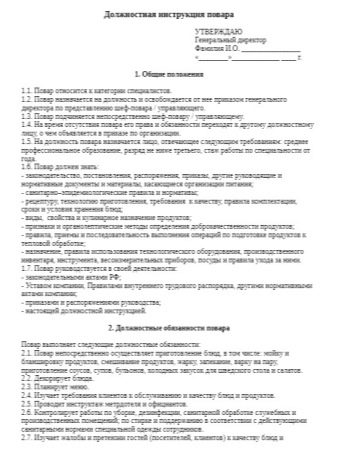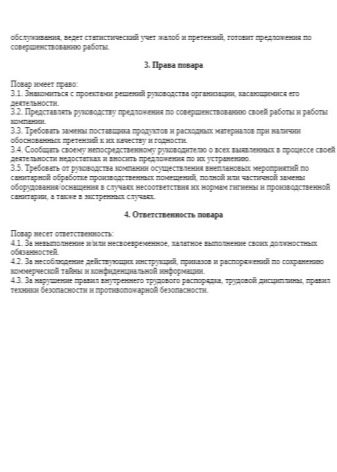Hot shop chef: features of work and functional responsibilities
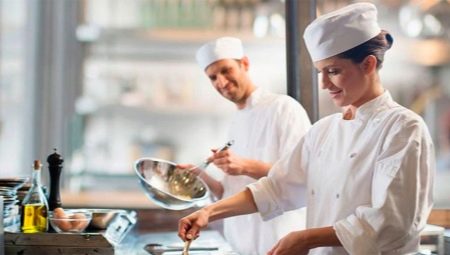
From the name “hot shop chef” it is often concluded that he only cooks hot dishes. But the peculiarities of work in this area are not limited to high temperatures. Functional responsibilities can be noticeably more varied, and you must always remember about them.
What kind of work is this?
The hot shop chef is one of the key figures in an industrial or school canteen, and in a restaurant of a respectable level. Everywhere, it is hot food that is the fundamental component of nutrition. And it is by her that, first of all, they judge the skill of the cook's collective, the dignity of the institution as a whole. But cooks in a hot shop can be very different from each other. There is a difference between them, if only because of their narrow specialization.
In the hot shop:
- a wide range of products are heat-treated;
- previously made semi-finished products are brought to full readiness;
- first, second courses are created;
- sweet food is made;
- confectionery products are baked.
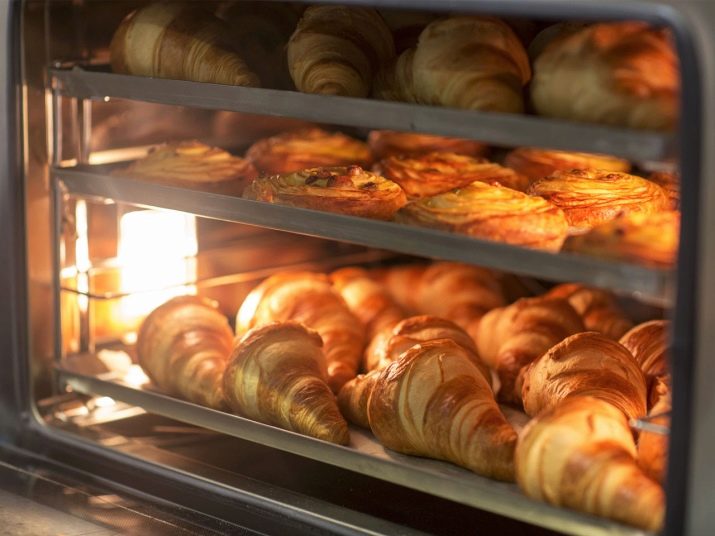
Such complex culinary processes would be unthinkable without the correct organization of the workplace. And although the administration is responsible for its preparation, the contribution of the chefs themselves cannot be ignored either.
They must also make sure that everything is in perfect order. We'll have to use:
- ovens;
- electric and gas stoves;
- refrigerators;
- shelving;
- special work tables;
- cooking kettles with internal water supply.
Very large hot shops can be additionally divided into soup and sauce segments.In any case, there is professional culinary equipment, which is more perfect than domestic counterparts. For fish dishes, a separate working area is most often allocated so that fish and meat do not intersect. The organization of workplaces is influenced by:
- the degree of specialization of chefs and their sites;
- availability of equipment;
- variety of culinary products;
- total volume of cook production.
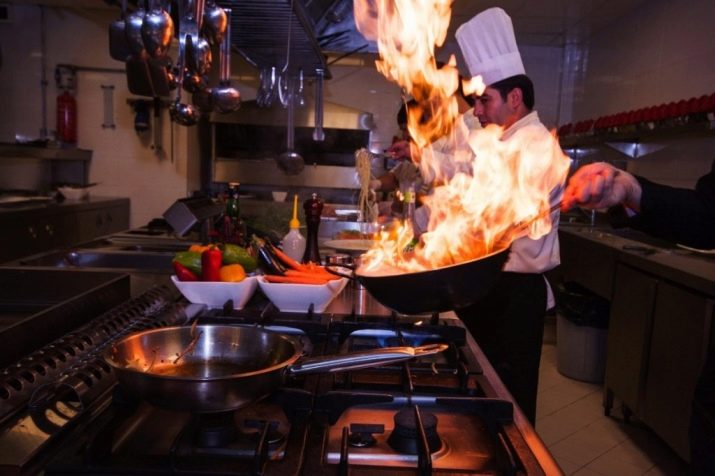
Qualification requirements
The cooks of the hot shop can be trained both in higher and in secondary specialized educational institutions. However, such a specialist (and in the framework of culinary production it is a specialist) must necessarily know in both cases the recipes and technologies for preparing semi-finished products. There are no seniority requirements for higher education. Culinary specialists who graduated from a technical school or college will have to work in advance for 1 year or more in other positions.
When applying for a job, they will certainly be interested in the compatibility of products and which of them are interchangeable; the answers to these questions are used to judge the level of the candidate.
The required qualification level also implies possession of:
- principles of storing dishes, dividing them into portions and norms of attractive serving;
- methods of organoleptic quality assessment;
- methods of eliminating the shortcomings of ready-made meals;
- the main methods of food processing, their nuances and limitations;
- the art of using aromatic ingredients, herbs and spices.
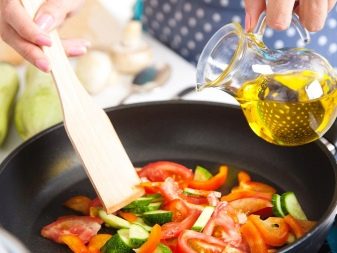
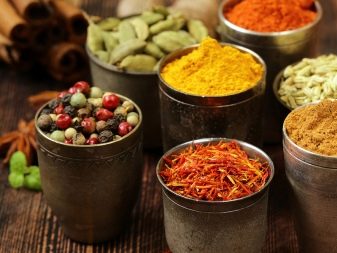
Functional responsibilities
The specific functionality, as already mentioned, depends on the size of the kitchen. In small restaurants and canteens, one cook is usually responsible for the entire site. In more respectable establishments, someone makes sauces, someone makes soups, someone fries meat. The responsibilities are usually assigned to the chef, who is the highest authority in this matter. It is extremely rare for administrators to interfere with this topic.
Important: the cooks of the hot shop usually do not prepare semi-finished meat and fish products, auxiliary and preparatory work. This is the prerogative of the butcher's employees and assistants, respectively. But no one can remove from the cook the obligation to comply with the cooking technology and sanitary and hygienic standards. In such a position, it is very important to act with strict discipline and scrupulously consider the use of time.
Formally, however, no one writes in the job descriptions - but that is not necessary.
The cooks of the hot shop must themselves assess the quality of the products and raw materials. They also dispense dishes at the distribution (unless another employee is engaged in this). These specialists make sure that everything is properly stored, so that the workplace and around them are clean. Ideal cleanliness must be maintained both inside the refrigerator and in the utility rooms. It is also worth mentioning the necessary qualities:
- absolute responsibility;
- punctuality;
- excellent eye;
- sense of time;
- willingness and ability to work in a group;
- willingness to perform a large amount of work;
- physical endurance.
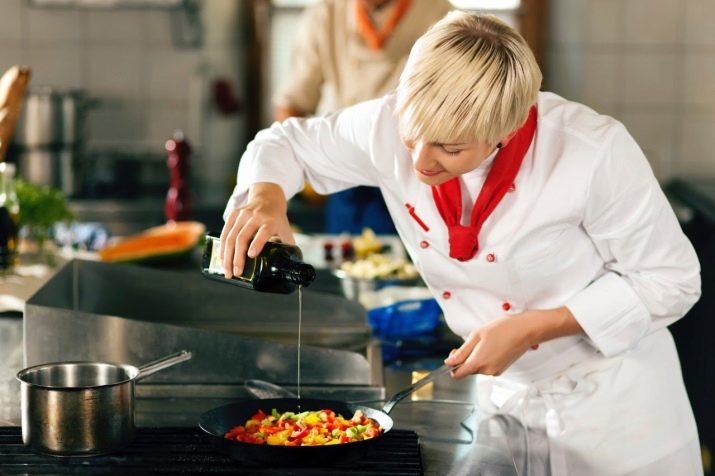
Job description
According to this document, the cooks of the hot shops follow the instructions of the sous-chefs and chefs. They give orders to trainees and assistant cooks. You will definitely have to interact with administrators, waiters and junior kitchen staff. Job descriptions often write that it is necessary to control the freshness of products and their compliance with the menu, the consistency and the required form of slicing. After each manipulation and at the end of the working day, "hot" chefs clean up the workplace.
When they hand over the shift, it is necessary to indicate what blanks are, if necessary - to submit applications for missing products. The hot shop chef also has credentials. So, he has the right to demand all the documents necessary for the organization of culinary production.There is also the right to participate in the inventory, in checking the technical and operational condition of kitchen equipment. There is also the right to make suggestions on how to improve production, how to expand the range and raise the quality of food.
The hot shop chef is responsible for:
- food quality;
- execution of the norms of its output;
- compliance with the order when cooking;
- fulfillment of requirements for taste and design;
- violation of safety and sanitation standards;
- maintenance of inventory, food and other property;
- prompt execution of all orders;
- material damage;
- deliberate failure to fulfill obligations.
